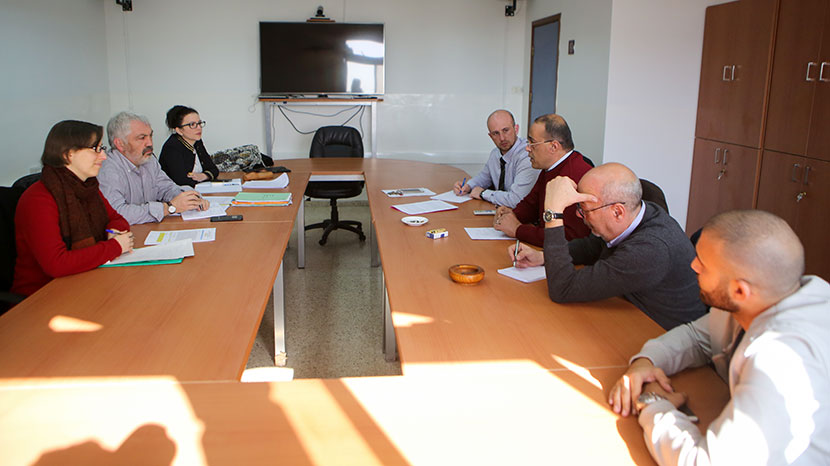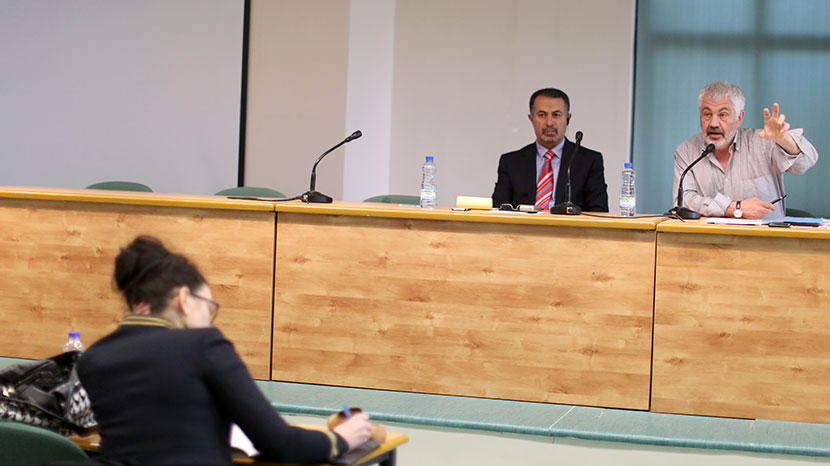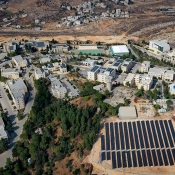Lecture Series Explores Reconciliation in Transitional and Post-Conflict Societies
Experts in transitional justice and democratic transition theories spoke at Birzeit University in a three day lecture series organized by the Faculty of Law and Public Administration, in cooperation with Varenne Institute for Transitional Justice and the University of PAU.
The expert on Democratic Transition Jean Pierre Massias discussed in a round table organized by the Department of Political Science, the Theory of Reconciliation and Democratic Transition, where he discussed the process of building a lasting peace through reconciliation after conflicts, shedding light on Palestine.
The roundtable was attended by political science professors Abdul Rahman Haj Ibrahim, Lord Habash, Murad Shaheen and a number of international experts.
The Head of the Political Science Department Abdul Rahman Haj Ibrahim said that this panel explores the theoretical explanations of two important theories that can explain the geopolitical transformations in the Arab region and Palestine. He added that these theories examine role of international hegemony, and the domination of the western norms and values on the international community, especially on the Arab world.
The Department of Law in Birzeit University held a lecture on Transitional Justice and Reconciliation Theory, presented by the international expert and constitutional law professor at PAU Jean Paul Massias.
Massias pointed out to the concept of justice transition emerged in the era post world II to trial the German and Japanese Nazis. This case, according to Massias, presents one of the most complex cases of transitional justice as it was dominated by the allied nations who exercised their political powers and interests to control the outcomes of the trial.
According to Massias transitional justice was then used after the Yugoslav Wars in 1992, and after the Bosnia Crisis, Ruwanda Genocide and in Latin America where serious violations of international humanitarian law were committed, and therefore an International Criminal Tribunal for these cases was established with a resolution by the security council of the United Nations.
The international expert pointed out that even though the international community has been taking part in seeking for justice by introducing tribunals and other mechanisms, nevertheless, these measures lack effectiveness when it comes to suing those who are in power.
Earlier this week, Massias, Political Science and International Relations researcher Emilie Combaz, the Director of Varenne Institute for Transitional Justice Magalie Besse, the Head of the Law Department Mustafa Abdul Baqi Birzeit's, and law professor Hala Shoaibi pathways of democratic transitions and transitional justice in Spain, the Arab world after the “Arab Spring” and in Palestine.









